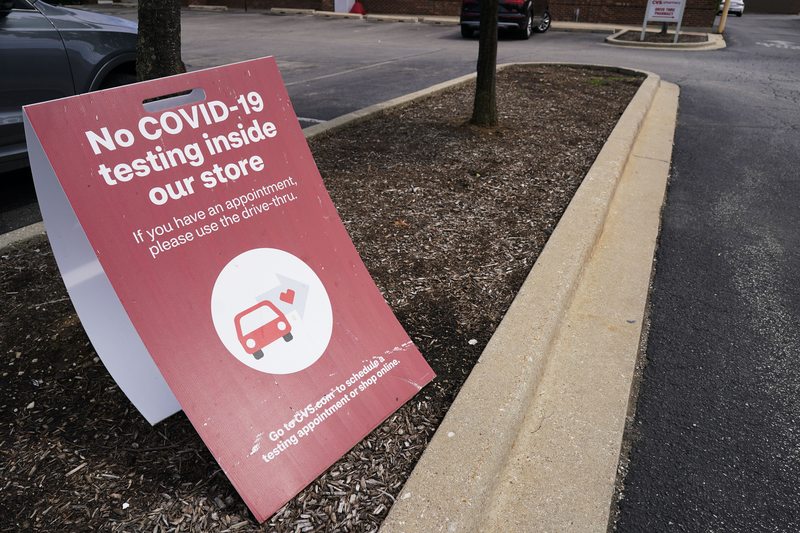[music]
Melissa Harris-Perry: I'm Melissa Harris-Perry last week here on The Takeaway, we talked with Ed Yong, a staff writer at The Atlantic about what our nation's great unmasking means for immunocompromised people.
Ed Yong: A lot of them feel horrifically abandoned by the government and by the rest of society, even those who've been vaccinated might not have mounted a strong immune response to the vaccine and might still be at risk despite having ostensibly done everything right.
Melissa Harris-Perry: Now, this is an issue that got many of you talking, and here's some of what you told us.
[music]
Eddy Alvarez: This is Eddy Alvarez. I'm calling from Pantego Texas. My granddaughter was born with one kidney and is considered immunocompromised. At this stage of the pandemic, it has caused a huge risk in the family because of perceived overreactions. We are very saddened and apprehensive about going out into the world with this baby.
Melissa Harris-Perry: Our hearts go out to you and to this sweet baby. Now, some of you shared your concerns about how other people react when you wear masks in public.
Adrian: Yes, I am immunocompromised and on chemotherapy regimens for the rest of my life. Luckily it's working and I need to keep it that way. I am getting comfortable with the one-way masking. I have to take care of myself and my family, regardless of what other people are doing. Hopefully, people won't castigate us for continuing to wear masks when we're out in public. My name is Adrian and I am from [unintelligible 00:01:52] Island Washington.
Mike Walz: My name is Mike Walt, the city is Quinton, Virginia. I am immunocompromised because I just finished six months of chemotherapy. Our governor here in Virginia is saying no masks and I'm still wearing a mask in public because I really feel uncomfortable that not enough people are vaccinated and I'm not really safe to be around them but I want to go and live just like everybody else. I just can't trust that people without masks aren't carrying COVID.
Andrea: Hey, this is Andrea calling from Boston. I am a lung transplant recipient and I've been immunocompromised for 23 years. I have learned to live with the flu and all kinds of other viruses with the difference with COVID is that there's no treatment for me. Now that the masks are being dropped, I'm not sure what that means for me. I'm not sure if I'll be able to go back to some places that used to be my new normal. I've already gotten some looks and some comments about still wearing a mask. I just feel like I'm going to have to go around and tell my story over and over and over again. I feel isolated.
I feel I'm [unintelligible 00:03:08] I definitely feel like people have been conditioned at this point to just take care of themselves. I'm not even sure if my family is going to be willing to avoid mask.
Julianne: Hi, this is Julianne. I'm calling from Northwest rural Michigan about being immunocompromised. Yes, I am and I continue to wear my mask. I have had sales clerks slam my items on the counter and look at me, just fiercely. I've had people snear at me. I've had people [unintelligible 00:03:43] at me. It's okay. They don't understand, I guess, I wish they had a little more compassion in their hearts.
Melissa Harris-Perry: A little more compassion in our hearts. That is something we definitely need right now.
Luthor: This is Luthor from Colorado Springs, Colorado. I have a mother who has a pacemaker and a father who is a cancer survivor. Both of them were worried about how they would cope if they were to contract COVID. There seems to be a shutoff point where people have just been concerned for so long that we can't conjure up more concern and it's at the same time frustrating. On the other hand, kind of understandable.
Melissa Harris-Perry: Thank you all so much for calling in and sharing your stories. We want to keep hearing from you as COVID measures change in all of our communities. Call us anytime at 877-869-825-3 or record a voice memo and send it to takeawaycallers@gmail.com.
[00:04:59] [END OF AUDIO]
Copyright © 2022 New York Public Radio. All rights reserved. Visit our website terms of use at www.wnyc.org for further information.
New York Public Radio transcripts are created on a rush deadline, often by contractors. This text may not be in its final form and may be updated or revised in the future. Accuracy and availability may vary. The authoritative record of New York Public Radio’s programming is the audio record.




